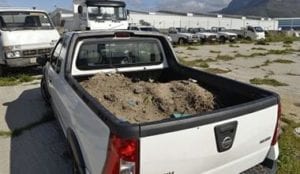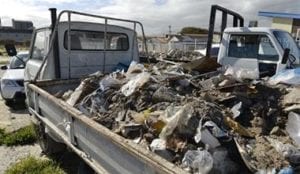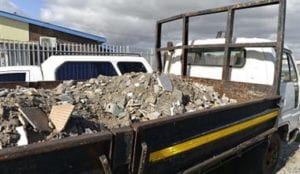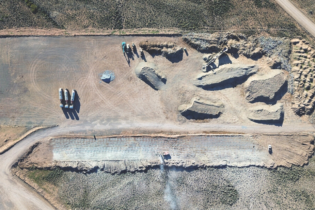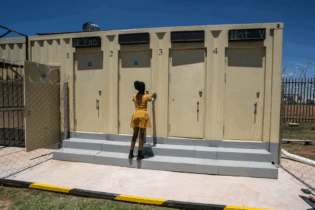As with any other societal challenge, of which there are many, enforcement alone is not the solution. The City conducts ongoing awareness sessions about the impact of illegal dumping on the environment and the health of communities. We have 24 waste drop-off sites around the city where we accept recycling, garage and garden waste, and clean builder’s rubble at no cost to residents.
Furthermore, we have incentivised the public to blow the whistle on illegal dumping. The City already has a reward system in place where members of the public can call our Public Emergency Communication Centre (PECC) on 107 from a landline or on 021 480 7700 from a cellphone to report offences. If the tip-off results in an impoundment, arrest or recovery of stolen or illegal goods (with the understanding that a formal case docket will be opened with the South African Police Service and a relevant case number provided), then a reward of up to R5 000 is payable. The City is extremely serious about addressing illegal dumping; however, we cannot do it alone and require the help of each and every resident in Cape Town if we are to achieve the ideal of litter-free streets and public places. Let’s work together and eradicate this problem. I urge residents to recycle more in order to reduce pressure on our landfill sites and to refrain from using the so-called ‘trolley brigade’ to dispose of unwanted rubble or waste. Experience has taught us that these items are dumped at the first most convenient spot, which adds to the problem. It hampers our efforts to create safer, healthier communities through service excellence, as spelt out in our service delivery blueprint, the Organisational Development and Transformation Plan. ‘Broken Windows’ When viewed in the context of the ‘broken windows’ theory (popularly championed by former New York Mayor, Rudy Giuliani) it is clear that as long as indicators of disorder like vehicle wrecks, broken infrastructure, graffiti and dumping and littering prevail in an area, it will be almost impossible for the community to achieve urban regeneration and thus criminal activity will remain more prevalent than in areas where these indicators do not exist or do not exist in abundance. Cleaning up an area and ensuring that the community develops an intolerance of dumping and dumpers is essential in fighting the culture of lawlessness and crime.
Statement by the City of Cape Town’s mayoral committee member for safety, security and social services, alderman JP Smith.
The City of Cape Town’s Law Enforcement Department recently impounded its 100th vehicle used for illegal dumping. The milestone came just a year after an amendment to the Integrated Waste Management By-law making provision for impoundments.
Heavy costs
The drivers were each fined R5 000 and a further R7 500 impoundment release fee is payable to reclaim their vehicles. This is currently what the law allows the City to do. In addition, Law Enforcement has issued 172 dumping fines valued at nearly R750 000, issued more than 500 compliance notices, and impounded 80 wheelie bins used for illegal dumping. The Philippi farming area and surrounds remains the worst hotspot, with a staggering 86% of vehicle impoundments happening in this area.
However, the income derived from the City’s enforcement efforts is a drop in the ocean when compared with the cost of cleaning up illegally dumped materials, not to mention the potential health impact on surrounding communities.
Multi-tiered solution

